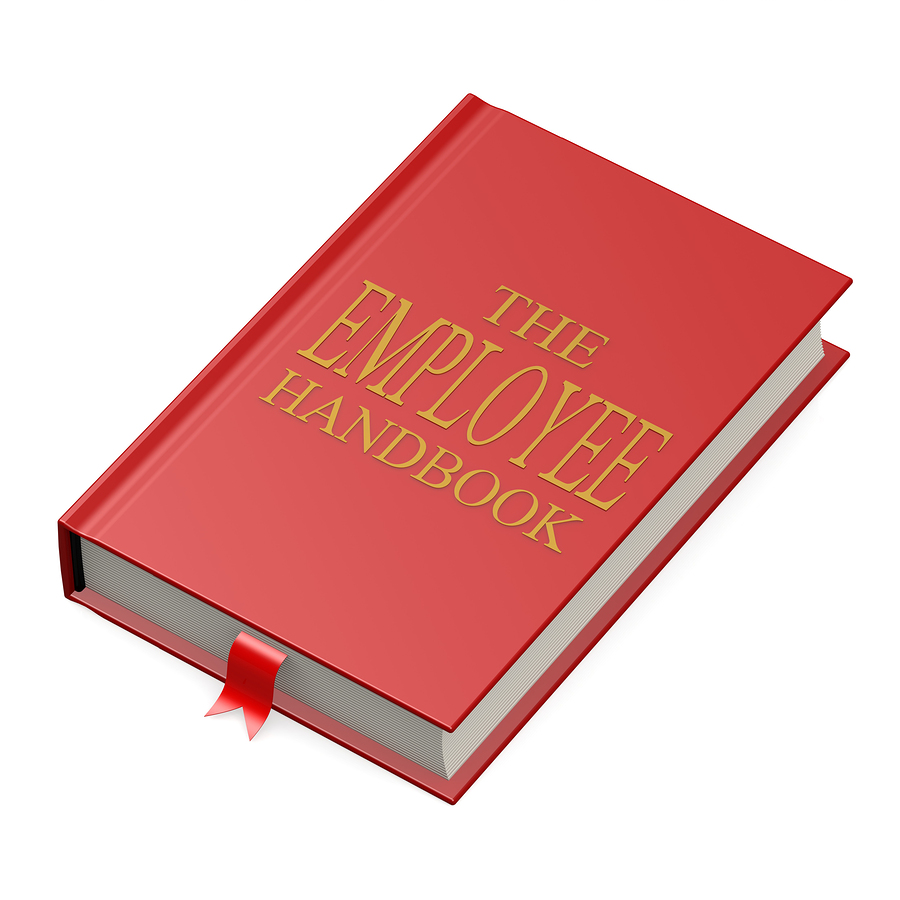Contact Us
Categories
- FTC
- Emotional Support Animals
- Service Animals
- Employee Agreement
- Remote Work
- Federal Trade Commission
- LGBTQ
- Minors
- United States Department of Justice ("DOJ")
- Work from Home
- Arbitration
- Workplace health
- Intellectual Property
- Trade Secrets
- Corporate
- Center for Disease Control
- Americans with Disabilities Act ("ADA")
- FFCRA
- Opioid Epidemic
- Occupational Safety and Health Administration (“OSHA”)
- COVID-19
- Families First Coronavirus Response Act
- H.R.6201
- Health Care Law
- IRS
- Paid Sick Leave
- Temporary Leave
- Treasury
- Coronavirus
- Worker Misclassification
- Labor Law
- Overtime
- Kentucky Unemployment Insurance Commission
- Sexual Harassment
- FMLA Retaliation
- Overtime Rule
- Employer Wellness Programs
- Genetic Information Nondiscrimination Act ("GINA")
- Kentucky minimum wage
- Minimum wage
- Paid Time Off ("PTO")
- Sick Employees
- Wage and Hour
- Employee Benefits
- Employment Discrimination Laws
- Employment Non-Discrimination Act ("ENDA")
- ERISA
- Human Resource Department
- Independent Contractors
- Kentucky Civil Rights Act (“KCRA”)
- OSHA
- Overtime Pay
- ADA Amendments Act of 2008 (“ADAAA”)
- Adverse Employment Action
- Americans with Disabilities Act
- Bring Your Own Device
- BYOD
- Civil Rights
- Compliance
- Department of Labor ("DOL")
- EEOC
- Employee Handbook
- Employee Misconduct
- Employment Law
- Fair Labor Standards Act (FLSA)
- Family and Medical Leave Act (“FMLA”)
- National Labor Relations Act (NLRA)
- National Labor Relations Board (NLRB)
- Pregnancy Discrimination Act
- Social Media
- Social Media Policies
- Title VII of the 1964 Civil Rights Act
- U.S. Department of Labor
- U.S. Equal Employment Opportunity Commission (“EEOC”)
- Uncategorized
- Union
- Volunteer
- Young v. UPS
- Amazon
- Department of Health and Human Services
- Federal contractors
- Kentucky Labor Cabinet’s Occupational Safety and Health Program (KOSH)
- Micro-unit
- Portal-to-Portal Act of 1947
- Security Checks
- Security Screening
- Specialty Healthcare & Rehabilitation Center of Mobile
- U.S. Supreme Court
- Cloud
- Creech v. Brown
- EEOC v. Hill Country Farms
- Equal Employment Opportunity Commission v. Kaplan Higher Education Corp.
- Lane v. Franks
- Mine Safety and Health Administration ("MSHA")
- Non-exempt employees
- Northwestern
- Shazor v. Prof’l Transit Mgmt.
- Web Content Accessibility Guidelines
- Whistleblower
- "Ban-the-box"
- 2013)
- At-will employment
- Berrier v. Bizer
- Bullying
- Chapter 11 Bankruptcy
- Chenzira v. Cincinnati Children’s Hospital Medical Center
- Citizens United v. Federal Election Commission
- Companionship services
- Compensatory time off
- Conestoga Woods Specialties v. Sebelius
- Consumer Credit Protection Act (“CCPA”)
- Crystalline Silica
- Davis-Bacon and Related Acts
- Drug-Free Workplaces
- Earnings
- EEOC v. Fabricut
- EEOC v. The Founders Pavilion
- Ehling v. Monmouth-Ocean Hospital Service Corp.
- Federal Stored Communications Act (“SCA”)
- Giant Food LLC
- Government employees
- Government shutdown
- Home Health Care Workers
- Illness and Injury Reports
- Job applications
- Jury duty
- Kentucky Department of Workers’ Claims
- Kentucky Wage and Hour Act
- KYSHRM 2013
- Mandatory vaccination policies
- Maternity Leave
- McNamara O’Hara Service Contract Act
- Medical Exams
- NFL Bullying Scandal
- Payroll
- Permissible Exposure Level ("PEL")
- Private employers
- Sebelius v. Hobby Lobby Stores
- Senate Bill 157
- SHRM
- Small Business Administration (SBA)
- Violence
- Wage garnishment
- WorkSmart Kentucky
- COBRA
- Contraceptive Mandate
- Defamation
- Defense of Marriage Act (“DOMA”)
- Employee Arrests
- Employee Forms
- Employee Hazards
- Employee of the Month Programs
- Employee photographs
- Employee Training
- Employer Group Health Plans
- Employer Mandate
- Employment Practices Liability Insurance
- Endorsements
- Federal Workplace Agencies
- FICA
- Form I-9
- Freedom of Speech
- Gatto v. United Airlines and allied Aviation Services
- Health-Contingent Wellness Programs
- HIPAA
- House Labor and Industry Committee
- KRS 391.170
- Litigation
- Madry v. Gibraltar National Corporation
- Megivern v. Glacier Hills Incorporated
- Motivating Factor
- Obesity
- Online Account Protection
- Online Defamation
- Participatory Wellness Programs
- Patient Protection and Affordable Care Act
- Pennington v. Wagner’s Pharmacy
- Pension Plans
- Play or Pay
- Posting Requirements
- Record Retention
- Reference checks
- Religious Employer
- Right to Work Bill
- Sequester
- Severance Pay
- Social Media Ownership
- Supervisor
- Supplemental Unemployment Compensation Benefits
- Tangible employment actions
- Tax Refund
- Telecommuting
- Title VII retaliation cases
- Troyer v. T.John.E Productions
- U.S. Citizenship and Immigration Services
- Unfair Labor Practice
- United States v. Quality Stores
- United States v. Windsor
- University of Texas Southwestern Medical Center v. Nassar
- Vance v. Ball State University
- Crisis Management
- Job Description
- Job Requirement
- Kentucky’s Whistleblower Act
- Labor and Pensions ("HELP")
- Municipal Liability
- PhoneDog v. Kravitz
- Public Sector Liability
- Social Networking Online Protection Act (SNOP)
- Social Privacy Laws
- Strategic Enforcement Plan (SEP)
- White v. Baptist Memorial Health Care Corp.
- Wilson v. City of Central City
- Workplace Politics
- Class Action Waivers
- Criminal Background Checks
- Employee Performance Reviews
- Employee Personnel Files
- Federal Arbitration Act (FAA)
- Federal Department of Labor
- Hiring and Firing
- Hosanna-Tabor Opinion
- Informal Discussion Letter (“EEOC Letter”)
- Kentucky Labor Cabinet
- National Labor Relations Act
- Retaliation by Association
- Salary Threshold
- Unemployment Benefits
- Workplace Discrimination, Harassment and Retaliation
- Business Insurance
- Communications Decency Act
- Employee Contracts
- Insurance Coverage
- Internet & Media Law
- Internet Defamation
- Non-Compete Agreement
- Uniformed Services Employment and Reemployment Rights Act
- USERRA
What You Don’t Know about Labor Law Can Hurt You – Do You Have These Three Illegal Handbook Provisions?
You set up your business entity to shield you from liability issues, you consult with an employment attorney to ensure compliance with the Americans with Disability Act and Title VII, and you’ve made sure that your health plan and retirement accounts comply with the mandates of the Affordable Care Act and ERISA. You think you’ve covered all your bases, so you next begin work crafting common-sense policies to ensure a smoothly-operating business. And that’s when you step in it.

One of the more challenging aspects of running a business is employing others to help you. It would be easy if you could do it all yourself, but somewhere along the line you’re going to need employees, and the more employees you have, the more potential issues can arise. Even if the employees aren’t part of a union, they’re still protected by Section 7 of the National Labor Relations Act (“Section 7”), and it’s unbelievably easy for your policies – which might make sense to you – to run afoul of these protections. Let’s take a quick look at just a few of the ways that employers find themselves in a scary situation in labor law.
Let ‘Em Talk
Your first move is to write a policy that says employees can’t talk poorly about your business either on social media or to outside people. That’s okay, right?
Nope! Section 7 of the National Labor Relations Act (“NLRA”) grants employees the right to “to engage in … concerted activities for the purpose of mutual aid or protection…” The NLRB has interpreted this concept of protected, concerted activity to include complaining about your job, complaining about your manager, complaining about your employer or its business activities. Something as small as simply “liking” a negative Facebook post about an employer could create protection for an employee if it involves discussion of the terms or conditions of employment. That means if your policy makes your employees feel they can’t discuss their employment with each other in public forums like Instagram or Facebook, it runs afoul of Section 7.
Examples of this are everywhere, such as the Motor City Pawn Brokers, Inc., case, in which an Administrative Law Judge found that restrictions on foul language, badmouthing and bullying were unlawful because they involved restricting communications among employees. The NLRB has ruled against regulations banning workplace gossip! Heck, when employees of a certain sandwich restaurant chain distributed posters stating that their company’s sick leave policy might lead to contaminated food made by unhealthy workers, the Board said the employees could not be terminated or disciplined.
Let’s Talk Money
Employees can’t be forbidden from talking poorly about the company, but can you write a policy saying they are forbidden from discussing their pay with each other, since that only leads to trouble and dissention in the ranks?
Nope! For the same reasons as above, the NLRB has ruled that employees have a right to discuss their wages with each other. It may well be the most essential term of employment.
But Wait…Is Anything Confidential?
“Our Company values protecting the privacy and security of protected health information, personally identifiable information, and other employee information. It is not permissible to disclose this information through social media or other online communications.” Now, what could possibly be wrong with this policy?! Can you see the violation?
The Division of Advice at the NLRB opined that a similar policy restricting the disclosure of “employee information” could reasonably be interpreted to include employee contact information which if regulated would “significantly restrict employees from engaging in their core Section 7 rights.”
But wait…there’s more!
These aren’t the only areas of labor law that can tangle up employers, and we haven’t even scratched the surface of non-solicitation/non-distribution clauses, campaigns, collective bargaining and the like.
The main takeaway here is that just because the employees of your business aren’t represented by a union doesn’t mean that they aren’t protected by the NLRA. But do not fear, a seasoned labor lawyer can help you achieve your goals while still staying compliant with the law.

Claire M. Vujanovic, member with McBrayer, is located in the firm's Louisville office. Ms. Vujanovic's practice is concentrated in the areas of labor and employment law and includes NLRA compliance, drafting and reviewing employment manuals and policies, drafting severance, non-compete and employment agreements, and counseling clients related to overtime and wage and hour regulations, laws and claims and workplace discrimination. Ms. Vujanovic can be reached at cvujanovic@mcbrayerfirm.com or (502) 327-5400, ext. 2322.
Services may be performed by others.
This article does not constitute legal advice.

